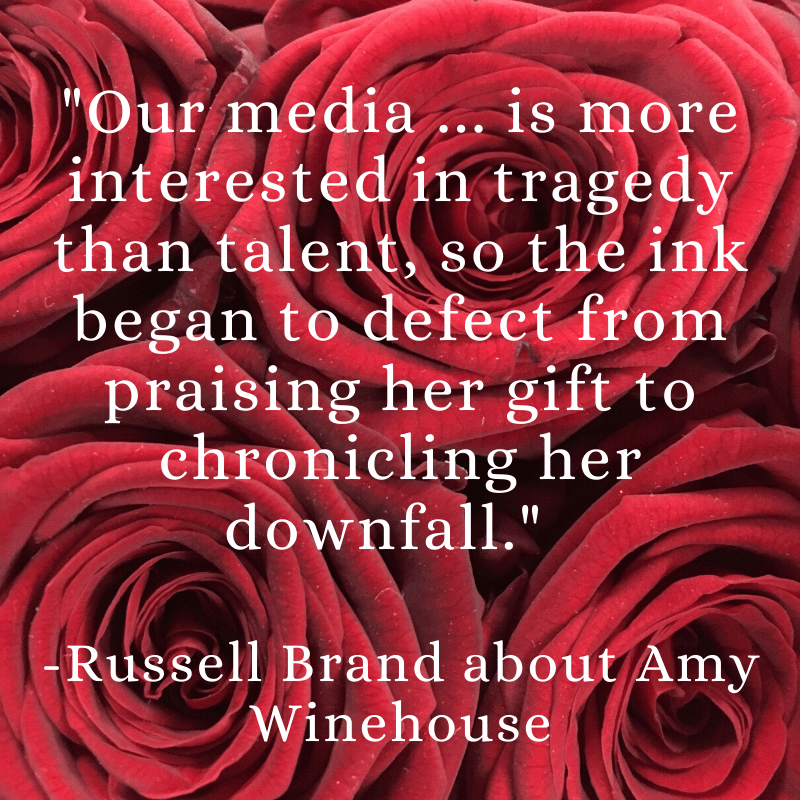
In the early 2000s, it was harder to engage in celebrity gossip. You had to buy a trashy magazine, tune into chat shows or enter into small talk with your hairdresser. With the development of the internet and social media, we have an immediate and unfiltered system for sharing gossip. The competition for a viral story leads to embellishment of reports and snappy clickbait titles.
On February 15th 2020, Caroline Flack, an esteemed British TV presenter, was found dead in her home. She had taken her own life following months of online harassment and negative press. The UK tabloids are now facing blame for their history of hypocrisy and dishonest reporting of women.
A prominent example of this was the media treatment of Amy Winehouse. At the beginning of her career, she received regular praise for her confident individuality and unique jazz style. Early interviews were enthusiastic, portraying a woman with emotional intelligence and genuine charm. She received music award nominations and chart successes, but behind the scenes Winehouse fell into alcoholism and drug abuse. Her behaviour and erratic performances became feverishly documented and pursued by the media, with certain tabloids picking her life apart day by day. Rather than voicing sympathy and support for somebody in need of help, the media chose to humiliate and mock Winehouse’s struggle. Only following her consequent death did these same media outlets voice mourning and tribute to her. This was a transparent decision made not out of remorse, but as a means to profit from tragedy.
The belief that Amy Winehouse’s death was simply the result of ‘struggle with fame’ absolves the media of blame for their part in her downfall. The demand we create and, as a result, the levels that reporters will go to create the most scandalous headline is in our control.
In the wake of Amy’s death, people urged each other to be kinder. Celebrities were quick to point out the fault of the media and their spread of hurtful half-truths. We were told to consider celebrities as human beings. Nine years later, the news of Caroline Flack has provoked the same message.
‘In a world when you can be anything, be kind’, was the quote that accompanied one of Caroline’s final instagram posts. #BeKind began to trend on Twitter, alongside petitions demanding there be an inquiry into the maltreatment of those in the public eye. Hundreds of thousands of people have signed, saying enough is enough. We have both the power and responsibility to change the way that we consume celebrity news, to be more discerning and not to believe everything we see or hear.
-Jessica Yarnall
Junior Girl
Girl Museum Inc.
